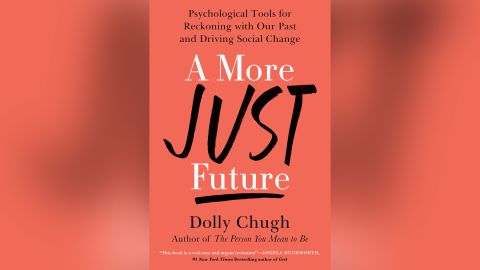Decades before George Takei became Mr. Sulu on the original “Star Trek” series, he was imprisoned for a crime he never committed.
When he was a small child, he and his family, along with 120,00 other Japanese Americans, were sent to World War II internment camps on US soil. Decades later, it is clear that his country broke his heart, and he is committed to ensuring Americans know about this injustice.
Yet Takei also speaks of his deep love for his country. This tradition of loving one’s country, but not always liking what is done in its name, is not new. In the wake of the killing of George Floyd and the movement that followed, it is more relevant than ever. Many Americans are finding out about parts of US history that were not taught in schools, including the Tulsa race massacre of 1921 and Juneteenth.
But that knowledge often comes with emotional challenges. Some people are bumping up against guilt, shame or anger as the country’s collective understanding of its past is questioned and narratives about favorite holidays are debunked. Some are realizing other Americans have long been aware of these realities.
Dolly Chugh, a social psychologist and the Jacob B. Melnick Term Professor at the New York University Stern School of Business, has been studying what she calls the “psychology of good people” for two decades, and she knows firsthand how challenging it is to have narratives about self-identity and nationhood challenged.
The author of the newly released book “A More Just Future: Psychological Tools for Reckoning With our Past and Driving Social Change,” Chugh won’t leave you hanging. In this conversation, she offers seven tools grounded in psychological research that can help you learn — and unlearn — American history.

Angela Duckworth: You got to speak with the original Sulu from “Star Trek,” George Takei! How was that and what does it have to do with your work?
Dolly Chugh: The interview opened with him spontaneously singing “Hello, Dolly!” to me, so he definitely had me at hello!
More importantly, I wanted to hear about a formative part of his life that many of us know less about. When the United States and Japan were enemies during World War II, the US government forced Japanese Americans to leave their homes, communities and jobs. They were put in barracks behind barbed wire and armed soldiers. George spent four years of his childhood essentially incarcerated for a crime neither he nor his family had committed.
George is now 85, and it moved me to tears to hear him speak both of what a grave mistake his country made and of his love of that country. This patriotism is more than what colors we wear or what holidays we celebrate.

I came away thinking about my patriotism differently. George helped me realize I’m not entitled to an easy, unquestioning love of country. It takes grit, a word I learned from your amazing research and book defining grit as “passion and perseverance in pursuit of a meaningful, long-term goal.”
A gritty patriot is someone whose love of country shows up with that orientation toward action and improvement, and that takes passion and perseverance! Grit is something Americans actually take a lot of pride in having, so this is just applying it to our relationship with our country and its past.
Duckworth: Why is grit required when thinking about patriotism?
Chugh: As our awareness grows, what we learn can be upsetting. I feel guilt and shame, disbelief and anger, and frankly, sometimes, I shut down. This response seems to be at play in debates over what should be taught in schools. It is difficult to unlearn narratives, especially tied to our identities as Americans. Grit is required.
Duckworth: What changed for you?
Chugh: Well, like many things, I have been learning from my kids. The Little House on the Prairie books have been loved by millions of people, and my family is no exception. In 2011, I read the series to my kids, and they loved it. We even traveled to Minnesota and South Dakota where the Ingalls family actually lived. My kids were really into the whole experience, even dressing up in prairie dresses! But at some point, it struck me that the story I had read to them wasn’t the whole story. Of course, I tsk-tsked at the moments of racism in the books but never really connected that to the broader societal context for my kids — or even for myself.
I have never questioned the American story I had grown up reading and watching. Whose prairie was that house built on? Whose land and lives had been claimed? I hadn’t tried to teach my girls that the Ingalls family were American heroes and colonizers. And the truth was, my kids absolutely could have handled it. I was the one who didn’t know how to. I didn’t have tools. Providing people with those tools is what I’m trying to do with my book.
Duckworth: You’re talking a lot about history but you’re not a historian. What’s the connection?
Chugh: Exactly. I am not a historian, and this is definitely not a history book. I am a social psychologist. I look at why people do what they do, especially as it relates to other people. I am interested in what science can tell us about how people think about their past — about their country’s past — and how that thinking impacts the present.
Duckworth: So how is this looking at how we think about the past relevant today?
Chugh: So many people are hungry for guidance. Should we change the mascot of our favorite football team? Should we take down a statue of a Confederate leader? Should we celebrate Thanksgiving? Should we teach our kids about slavery? Should we be teaching critical race theory in schools? And what even is critical race theory, anyway?
There is research that can help us. And once we deal with the emotions that come up, then we can be gritty patriots.
Duckworth: You offer seven tools. What is one that I can use right away to help me reckon with our complicated history?
Chugh: Practice paradox spotting! You can do it everywhere. Our brains like consistency and resist contradiction. But sometimes, multiple truths contradict one another. Our forefathers had extraordinary ideals and visions, they displayed extraordinary courage, and they overcame extraordinary odds. And many of our forefathers enslaved other human beings. They separated families and condoned the torture of those who resisted, at the same time that they were writing of liberty, justice and freedom.
A first step, then, is to adopt a paradox mindset. A new book called “Both/And Thinking” by Wendy Smith and Marianne Lewis describes how a paradox mindset makes us more able to be resilient and to see creative solutions.
Today, instead of looking for consistency in the world, look for paradox. Allow both things to be true. Then notice how your mind loosens up to allow for the knowledge that you may otherwise have pushed away. I could have used this when I was reading to my kids, and it would have opened up conversations I did not know how to have.
Duckworth: So what can I do next?
Chugh: A big part of being a gritty patriot is being willing to unlearn a narrative. Pick one — like the true story of Columbus Day, Thanksgiving or Rosa Parks, and learn the real story. Then tell three people what you learned. Use yourself as an example of someone who is actively unlearning and learning, navigating the emotions that brings up. It will model for others what it means to be a gritty patriot.
Duckworth: Who do you suggest we speak with?
Chugh: Anyone. Your kids, your colleagues, your neighbors. For extra credit, unlearn a narrative related to your racial or ethnic identity and ancestry. Then discuss with your family. This is especially hard because of the power of nostalgia, a sentimental form of history that may or may not be grounded in fact.
Angela Duckworth is cofounder, chief scientist and a board member of the nonprofit Character Lab. She is also the Rosa Lee and Egbert Chang Professor at the University of Pennsylvania and author of “Grit: The Power of Passion and Perseverance.”
"with" - Google News
November 03, 2022 at 10:30PM
https://ift.tt/SHedun1
How to love a country with a complicated history - CNN
"with" - Google News
https://ift.tt/hnt5wgH
https://ift.tt/J9f8x1A
Bagikan Berita Ini

















0 Response to "How to love a country with a complicated history - CNN"
Post a Comment